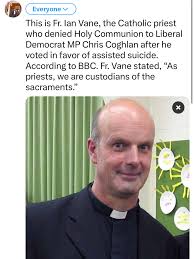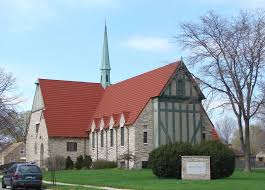Priest Denies Communion: A Controversial Decision Sparks Debate

Introduction
The recent decision by a priest to deny communion to an individual during a service in the UK has ignited a significant debate within the community and beyond. This incident highlights the delicate balance between faith, morality, and the policies of the Church, raising questions about who is deemed worthy to partake in a fundamental rite of Christianity. As faithful congregants reflect on the implications of this singular event, discussions about inclusivity, accountability, and the role of religious leaders in shaping moral behaviour have taken centre stage.
The Incident
The incident occurred last Sunday at a local parish in Kent, where Father Jonathan Smith, the priest in charge, denied communion to a congregant who had publicly expressed support for abortion rights. The decision was met with immediate backlash from some members of the congregation, who argued that the sacrament should be offered to all believers, irrespective of their personal views. According to Father Smith, his stance was rooted in the Church’s teachings on the sanctity of life, and he contended that it was his religious duty to uphold these principles.
Community Reactions
The congregation has been divided in their reactions to Father Smith’s actions. Supporters have rallied around him, asserting that he was acting in accordance with his conscience and the doctrinal teachings of the Catholic Church. Those who oppose his decision argue that such acts erode the inclusive nature of the Church and push individuals away from faith rather than encouraging them to remain engaged in the community. Social media platforms have been awash with opinions, with hashtags like #CommunionForAll trending and igniting conversations about the implications of this denial on young people’s faith.
Historical Context
This is not an isolated incident. Over the years, there have been various cases across the globe where priests have found themselves in similar situations, navigating the complex intersection of personal belief and church doctrine. The Catholic Church’s stance on controversial moral issues has often led to public outcry and divisions within communities. In the modern era, many clergy have chosen to adopt a more inclusive approach to communion, reflecting a shift towards compassionate pastoral care.
Conclusion
This event serves as a reminder of the broader conversations that need to take place regarding the role of the Church in contemporary society. As the discourse continues, it is essential for both clergy and congregants to engage in meaningful dialogue about inclusivity and the divergence between personal beliefs and church teachings. The dilemma faced by Father Smith illustrates the complexities at play, inviting a reevaluation of how traditional practices resonate with modern faith experiences. Ultimately, it remains to be seen how this controversial decision will influence future practices within the Church and the overall relationship between faith and personal belief in an increasingly diverse society.








